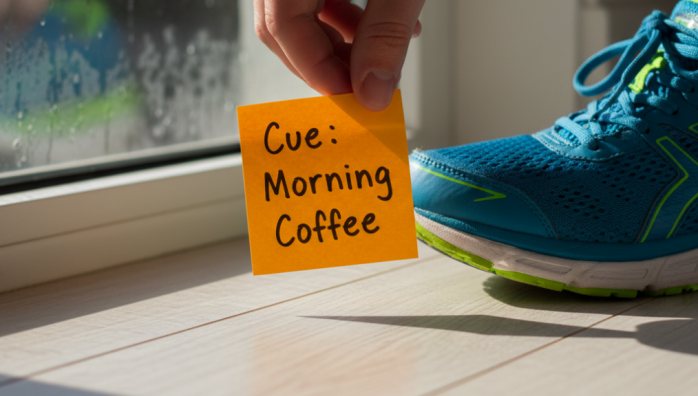The Science Behind Habit Formation
by admin in Productivity & Tools 113 - Last Update November 21, 2025

For years, I believed that building a good habit—or breaking a bad one—was purely a matter of willpower. I’d white-knuckle my way through a few days of a new gym routine or a commitment to drink more water, only to fall back into old patterns. It felt like a personal failure every single time. Honestly, I started to think some people were just \'wired\' for discipline and I wasn\'t one of them. It turns out, I was looking at the problem all wrong. It wasn\'t about willpower; it was about understanding the underlying mechanics of my own brain.
The myth that held me back
The first thing I had to unlearn was the old \'21 days to form a habit\' myth. I\'d clung to that number like a lifeline, and every time I\'d fail on day 15 or 22, I\'d feel completely defeated. But when I dug into the research, I found that this number was a vast oversimplification. A landmark study from University College London found it takes, on average, 66 days for a new behavior to become automatic. And even that is just an average; for some, it\'s a few weeks, for others, it can take many months. Realizing this took a huge weight off my shoulders. It wasn\'t about hitting a magic number; it was about consistency over a flexible period.
My \'aha\' moment: The habit loop
The real game-changer for me was discovering the concept of the \'Habit Loop,\' a neurological pattern at the core of every habit. Popularized by authors like Charles Duhigg, this simple three-step framework gave me a practical blueprint for engineering my own behavior. It\'s not magic; it’s just a feedback loop your brain creates to save effort. Before understanding this, I was just fighting against my own programming.
The cue: The trigger I was ignoring
The first step is the cue, the trigger that tells your brain to go into automatic mode and which habit to use. For me, a major bad habit was mindless snacking around 3 PM. I always thought the cue was hunger, but after some self-reflection, I realized it was boredom and the lull in my workday. That specific time and feeling were the real triggers.
The routine: The behavior itself
This is the habit itself, the physical or mental action you take. In my case, it was walking to the kitchen, opening the pantry, and grabbing something sugary. The routine is the most obvious part of the habit, but I learned it\'s often the least important part to focus on initially.
The reward: The missing ingredient for good habits
This is the final, and most crucial, step. The reward is what tells your brain, \'Hey, this loop is worth remembering for the future.\' The sugar rush from my snack was the reward that reinforced my 3 PM snacking habit. For the good habits I was trying to build, like going for a run, I realized I had no satisfying, immediate reward. I just had the exhaustion. This was the key I had been missing.
How I put it into practice
Once I understood the loop, I stopped trying to force things and started acting like a scientist, experimenting with my own behaviors. I focused on identifying the cues and engineering satisfying rewards.
- For my afternoon slump: I kept the cue (3 PM, feeling bored) but changed the routine. Instead of heading to the pantry, I\'d make a cup of interesting herbal tea or do five minutes of stretching. The reward was a momentary break, a pleasant taste, and the feeling of refreshment, which satisfied the craving for a \'treat\' without the sugar crash.
- For my morning workout: I needed a better reward than just \'being healthy\' (which is too long-term). My cue was putting on my running shoes right after waking up. The routine was a short 15-minute run. The immediate reward I engineered was listening to my favorite podcast, which I *only* allowed myself to do while running. It made me crave the run just to hear the next episode.
It sounds simple, and it is. But simple doesn\'t always mean easy. It took trial and error. The key for me was shifting my mindset from one of brute force to one of strategic design. I’m not just pushing a boulder uphill anymore; I\'m creating a gentle slope so the boulder rolls on its own.














